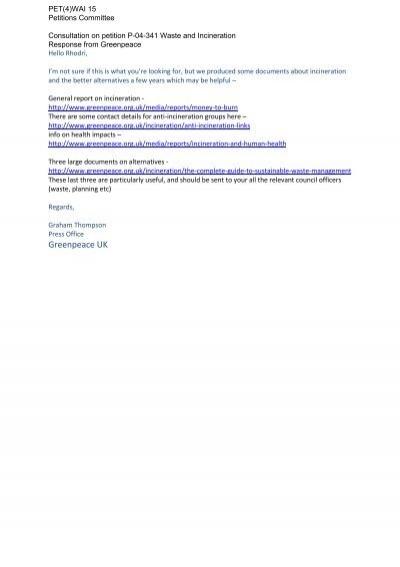[Sun Gazette Newspapers provides content to, but otherwise is unaffiliated with, InsideNoVa or Rappahannock Media LLC.]
The town of Vienna’s leaf-mulching facility on Beulah Road, N.E., for decades has produced free mulch for residents, but also has aggravated adjacent neighbors with noise and a pervasive stench from the stored leaves.
The Vienna Town Council on April 19 mulled options for the site’s future, but could not arrive at a clear consensus.
The Vienna Public Works Department’s leaf-collection program runs from Oct. 1 through March 31 of the following year. Street-maintenance workers make three to six passes to pick up leaves within the town limits, then process the leaves at the Beulah Road site and distribute mulch to residents and businesses in the town that request it. Leftover mulch goes either to businesses that will accept it for free, or to to a regional composting facility.
Matters came to a head last fall when the composting facility, which previously accepted unprocessed leaves for free, began charging the town $9 per cubic yard. The town’s 17-year-old tub grinder was not functioning at the time, so officials decided to pay a contractor $4 per cubic yard to mulch the leaves.
The program is quite popular with residents, with 89 percent of those who answered a 2018 survey rating it “good” or “excellent,” said Vienna Town Manager Mercury Payton.
Mulch demand increased steadily from 2005 to 2012, but since has receded to 2005 levels. The town collected 9,401 cubic yards’ worth of leaves in fiscal year 2018, but demand has declined every subsequent year, with a collection of just 7,427 cubic yards in fiscal 2021. That amount still is enough to fill the Vienna Community Center’s new gymnasium 25 feet deep in leaves, officials said.
(One cubic yard of unprocessed leaves weighs 350 pounds; a 30-gallon paper sack of same weighs 53 pounds. A cubic yard of mulched leaves crushes the scales at 450 pounds.)
The town acquired the 8-acre Beulah Road site in 1934 and began using an acre of it for leaf mulching in the late 1980s, under a conditional-use permit, said Town Attorney Steven Briglia.
NewGen Strategies and Solutions LLC, a consulting firm hired by the town, evaluated the town’s leaf-collection program and disclosed its findings to the Council at the April 19 work session.
Town staff recommended that Vienna continue its efforts, but contract out the mulching aspect.

NewGen’s report also provided two alternatives that would eliminate leaf mulching and mulch delivery:
• “Short haul,” in which the town would collect leaves, consolidate them at the Beulah Road site and haul them away for disposal.
• “Direct haul,” in which town crews would collect leaves and take them away directly for disposal.
The town’s current leaf-mulching program costs about $400,000 per year and has a long-term, average vehicle-replacement cost of $176,000. The short-haul option would cost about $326,000 annually and have the same vehicle-replacement cost. Direct-haul would run about $290,000 per year, but require the purchase of $1.1 million worth of vehicles and $246,000 in long- term vehicle-replacement costs.
Town Council members were of different minds on how to proceed. Council member Nisha Patel wondered why Vienna did not haul away its leaves, saying the town had to “look into serving the greatest good.” Member Ray Brill Jr.
said the town recently had received only 275 mulch orders out of about 5,000 households, and he objected to giving free mulch to businesses that later would sell it to customers.
Council member Charles Anderson said the town’s Conservation and Sustainability Commission should be tasked with evaluating the mulching operation’s environmental impacts.
Member Steve Potter leaned toward the short-haul option, saying the direct-haul alternative was too expensive. Council member Howard Springsteen was not optimistic that electrically powered large trucks would be available or affordable anytime soon to reduce the cost of hauling leaves.
Mayor Linda Colbert, who grew up in Vienna, said the mulching program was a perquisite of living in the town.
“We have a lot of people who enjoy it,” she said.
If town officials went with the direct-haul option, they could shut down the mulching site and turn it into a park or sell it for residential development.
The Beulah Road site is a “very valuable piece of property,” said Briglia, who gave $10 million as a low estimate its worth. “It’s prime steak in the freezer that the Council has.”
Town officials estimated the property, if zoned residentially, could accommodate about 20 lots.
The Town Council may elect to hold another work session on the mulching facility or allow residents to weigh in at a public hearing, perhaps at the Council’s June 7 meeting.









